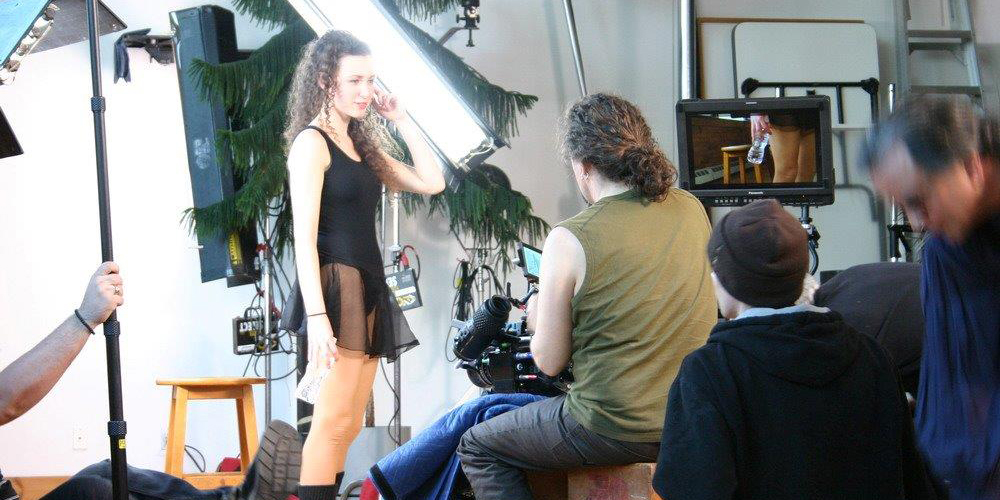COURSE OUTLINE
Film Acting Diploma ProgramAbout the Program
Course Outline Tuition and Start Dates Application Requirements Instructors Financial Aid - Scholarships - Second career How to apply - Canadian students Online Submission - American students Online Submission - International students Accepting Offer Pay & Refund Online Submission American Scholarships |
Overall Course Objective:
Our intensive, hands on, full time four month program is designed for film acting students to learn what is necessary to succeed in this highly competitive industry in a relatively short amount of time. In addition to receiving quality instruction on a variety of essential acting skills and camera techniques.
Students will finish the program with FOUR professionally edited scenes to put towards their demo reel. This will be used to promote students to talent agents, producers and directors in the Toronto Academy of Acting for Film & Television's vast professional network. Course Outline:
Month One:
Toronto Academy of Acting for Film & Television students will be introduced to Meisner Acting Technique and how to apply it! The goal to Meisner Acting Technique is for each actor "To live truthfully under given imaginary circumstances. " Academy of Acting students will be dealing directly with the elimination of self-conscious behavior and strengthening their ability to focus. These lessons will be applied at the end of the course in partnered short scene. Students will also be introduced in the first month to Acting Fundamentals & Script Interpretation. Part of the training will have the students focus on emotional embodiment for the actor. The biggest trap for actors is to avoid emotions or push emotions in a scene. Students will learn to express authentically using themselves, trusting themselves and allowing themselves to be an emotional reservoir. In order to work as an actor in the entertainment industry one must have 100% emotional flexibility. An actor must be emotionally available on camera, otherwise they will not appeal to directors, casting directors or producers. Students will gain the tools to analyze a script, build a character that honors the script writer's intention and stay true to the story while shooting their scenes. Another acting technique film acting students will be learning to apply is called the Susan Batson Acting Technique. Students will learn a number of ways to access any emotions with ease. A series of fun and intense exercises will teach students to open up and live in the given circumstances of the character. They will learn to become comfortable revealing vulnerability, as well as how to regain a sense of well being after difficult scenes. A minimum of three scripted scenes, a monologue and an improvised scene will be practiced applying the Susan Batson Acting Technique. Month Two:
Academy of Acting students will now be introduced to film scenes that incorporate Method Acting. The technique, developed by Konstantin Stanislavski, allows actors to achieve realism in acting by relying on sense memory, imagination, personal life history and personal emotions. It is one of the many ways we teach students to bring depth into their portrayal of a character and make their performance jump off screen. During the second month students will also be introduced to Voice & Movement. Voice for actors is based on the concept of the voice as a transparent screen free of restrictions and capable of expressing a wide range of emotions. Voice & Movement will be reinforced throughout months two and three to prepare the actors for their scenes. Month Three and Four:
It is imperative for actors to understand the business side of their careers. This course will present a series of special guest speakers who will provide an overview of the Canadian film & television industry. Guests will include talent agents, film/television producers/directors, professional film actors, industry photographers, casting directors and an accountant. Students will learn how to prepare a resume that stands out, what is a good head shot, the difference between non union and union film & television projects, what to wear to an audition, and why every film actor needs a professional demo reel. Students will now apply the full spectrum of skills they have learned with international award winning film & television director Andrej Acin. Film Acting School students will learn from the Director the Naturalistic portrayal of character, the most frequent style used in film. By practicing the on location shoot exercises, students increase their knowledge of the filming process, and where physical and emotional continuity is needed to fulfill the technical requirements of a role. Students will learn to work within the confines of a tight shooting schedule, how to effectively gage performance levels from a Master shot to extreme close-ups, how to become proficient in hitting multiple marks with a shot set up and come to understand the rules of onset etiquette and protocol. Each student will be directed in a scene from a feature film script of their choosing. Two scenes from the program chosen by the student & director will be professionally filmed and edited as a professional promotional reel ready to present to potential talent agents, casting directors, producers and film directors. The last part of the fourth month program will involve the Toronto Academy of Acting for Film & Television students working extensively on camera. Students will reproduce actual commercials, as well as work on improvisation techniques ending with mock auditions. The last week of the program will be dedicated to how to audition for film & television. Students will learn what works and what doesn't, and get to create their own tool box of techniques learned from drop in professional actors, directors and other industry guests. Students will be exposed to cold reading techniques, audition etiquette and protocol with a mock audition set up for the last day in class with a guest director/producer/actor/casting agent to give feedback on the audition. |

